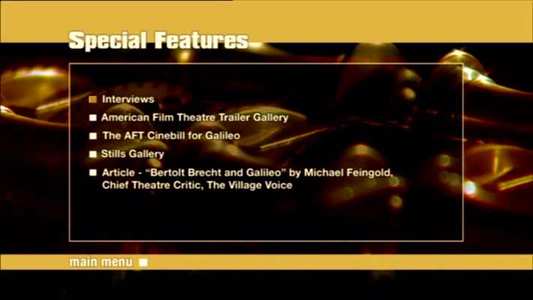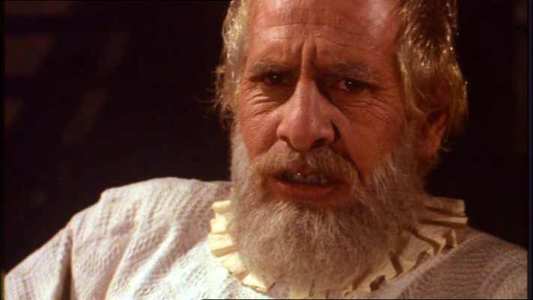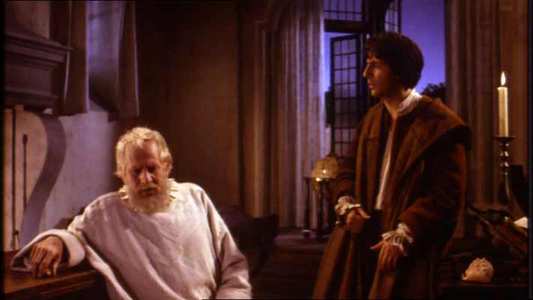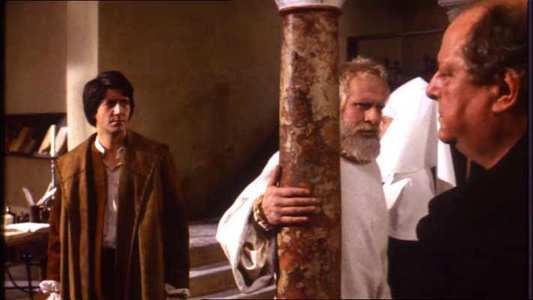Review of Galileo
Introduction
The American Film Theatre was an early 1970`s concept that sought to combine the best of theatre with the finest filmmaking. It peddled this `culture for all` philosophy reasonably successfully for a couple of years, until administrative bungles around theatrical ticket sales put them out of business. During their reign, their mission was helped considerably by the willingness of actors and crew to commit their services cheaply for an opportunity to tackle projects that would never have been funded by traditional commercial studios.
`Galileo` is no exception, with an impressive cast, as well as a prestigious Director (Joseph Losey) at the helm.
Unseen for over 30 years, this movie version of Bertolt Brecht`s `Galileo` should delight fans of, not only Brecht, but of the creative scientist that provides the subject matter.
Essentially it`s a play that shows how innovators and inventors like Galileo constantly struggle against conventional wisdom. Galileo Galilei was a brilliant mathematician born in Pisa in the 16th Century. The real focus of Brecht`s play is on Galileo`s discoveries about the solar system which went against the grain of ecclesiastical wisdom - with dramatic consequences.
Topol (Fiddler on the Roof) is energetically impressive as the young Galileo, and his enthusiasm for his discoveries is entirely infectious. (The first 30 minutes of this movie could be a great inspiration for any student struggling with their sciences). As the film progresses, and Galileo ages, his performance is less sure and consequently less impressive. Faced with the threat of death at the hands of the Inquisition, or publicly denying what he knew to be true, Galileo chooses the route of compromise.
Whilst Topol is the centrepiece here, there are many fine supporting roles, including a scene-stealing cameo from John Gielgud who (apocryphally) gave only a single day of his time to the venture. There are also sterling performances from Edward Fox, Tom Conti and Patrick McGee. Richard O`Callaghan (`Carry on Loving`) surprisingly plays a major role here too and is rather convincing.
Director Joseph Losey had a particular fondness for the material because he had directed a stage version of this in Los Angeles in 1947. It may have had an added resonance too as he was exiled from the USA during the McCarthy era for his `artistic proclivities`.

Video
Presented in a 1.78:1 anamorphic transfer. The colours presented here are highly vibrant, though you may want to increase the blacks with your contrast control.
There is a slight `shimmering` throughout the transfer which is one of those things that you`ll occasionally notice, and then will forget about as the action pulls you back into the story. Otherwise, the print is in pretty good nick.

Audio
Whilst the picture is vivid and clean, the audio is often less than perfect. The sound is noticeably thin and toppy on wide-shots, and where there is audio-post production, it`s `badly done` dubbing of a couple of Topol`s sentences that were either marred in the recording, or perhaps not clear due to his heavy Israeli accent. In truth, the audio recording here is the only recognisable indication of low-budget production. (The budget wasn`t there to fix the inevitable duff live recording). Having said that, it won`t necessarily mar your enjoyment of the piece. Just a warning that, if you`re an audio-phile, this is a long way short of perfect.

Features
There`s a 20-minute interview with an almost unrecognisable Topol, who`s slimmer, beard-free and looks like a `Dennis Norden` doppelganger. It`s an entertaining piece that shows that Topol`s enthusiasm for the project certainly hasn`t faded over time.
There`s also a 20 minute interview with the curiously monotone Otto Plaschkes who was the Executive Producer of the AFT. He talks about `Butley`, `The Homecoming`, `In Celebration` and `Galileo`.
The AFT Trailer Gallery is well worth a look too as it covers a whole series of plays brought to film, including `Lost in the Stars`, `Three Sisters`, `The iceman Cometh`, `The Maids`, and many others.
Finally, there are a number of text-based pieces that would be of interest to students studying Brecht and/or Galileo, and some slightly superfluous stills.

Conclusion
This DVD release of the AFT`s film version of Bertolt Brecht`s `Galileo` has a lot going for it. It has a first class cast, attractive costumes and sets (despite the small budget), wonderful cinematography and tight direction. It also historically profiles one of the greatest mathematicians to have ever lived, and will have educational value on that count alone.
If the film is ultimately unsatisfying though it`s maybe because the real energy and excitement of the narrative happens in the first third of the movie. The remainder seems to drag, and really isn`t helped by the theatrical use of musical chorus between acts to accentuate key occurrences. This probably worked well in theatre but fails to gel here, merely bringing you back to reality with a jolt. (`It`s a play after all…`).
For trivia buffs, part of the score used here was penned by Charles Laughton who starred in the early version of the play directed by Losey in Los Angeles in 1947.
Overall though, this is a worthwhile addition to the AFT collection with some fascinating extras that would make this particularly valuable to those studying theatre, filmmaking - or even mathematics and science!
Your Opinions and Comments
Be the first to post a comment!